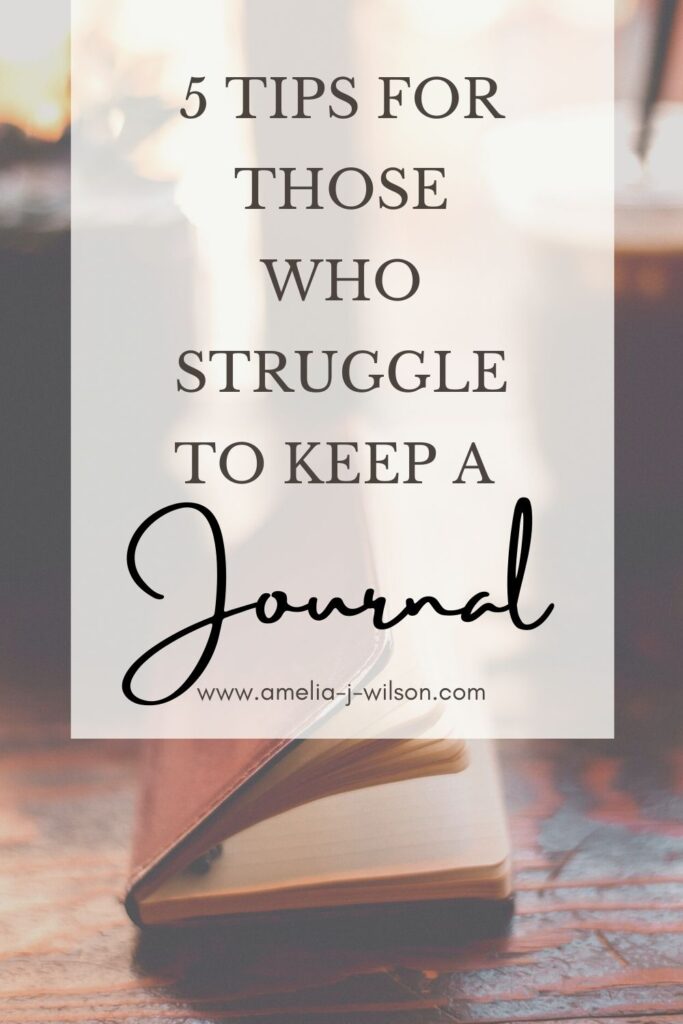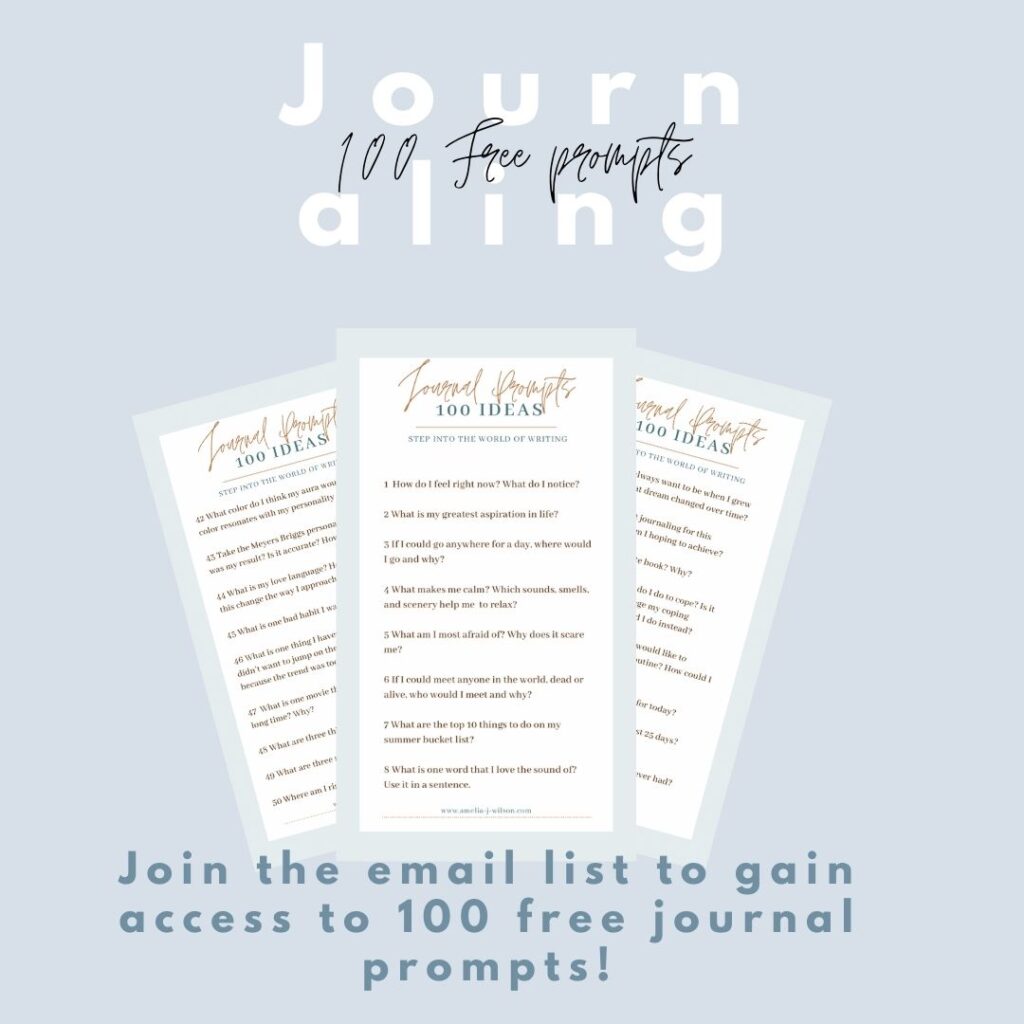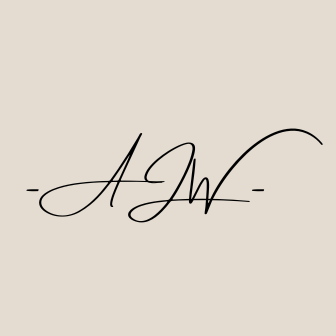As I continue to journal and expand my writing and creative abilities, I’ve noticed that there are several important components to effective journaling.
Keeping a journal is no simple task! While the act of journaling is fairly straightforward, it can be difficult to convince ourselves to follow through with this new routine.
Disclaimer: All of the views and opinions in this post are solely my own and are not sponsored. This post may include affiliate links, meaning I earn a commission through links at no cost to you.

Many people have reached out to me via Instagram, the blog, and my YouTube channel asking about my tips for keeping a journal. I’ll be honest, it’s not “easy,” but it’s also not as complicated as rocket science!
Below are my top five tips for keeping a journal.
Get a journal you’ll ACTUALLY use
I’ve talked about this quite a lot on my YouTube channel, but finding a journal that you’ll actually use is the most important step! And often, this is the first step to getting into journaling!
To get a journal you’ll actually want to use, you need to know what you want. Do you want a spiral journal? Book binding? Should it be lined? Blank? Dotted? What about the color? What about texture?
As silly as it sounds, ALL of these factors play a role in whether or not you’ll feel comfortable with your journal. You want the journal to feel enjoyable to write in. It should spark creativity and feel comfortable to use.
Look, when I was in college, I was broke as all get-out, and I couldn’t afford the journal I wanted. I ended up using a generic composition journal, and let me tell you! I hated it! It was clunky. It didn’t lay flat. And I hated writing in it. After switching over to the journal I have now, I’ve developed a new love for journaling.
If you don’t have access to the journal of your dreams yet, it’s okay! Do you best to work with what you have until you can get something better.
If you are able to get a nice journal, consider reading my blog post about finding the right journal for you to help you narrow down your choices.
Keep it in sight/ Make it obvious
If you’ve read my blog posts before, you likely know that I am obsessed with the ideologies of Atomic Habits by James Clear. In his book, Clear illuminates the best ways to go about forming new habits (and cutting out old ones as well).
One of the tips he provides to readers when forming new habits is to “make it obvious.” By this, he means, put the “cue” or “trigger” object in sight to encourage you to take action.
Here’s a quick example:
If you want to go to the gym more often, keep your gym bag and workout clothes right by the door. When you walk by the front door, you’ll see your gym bag (cue) and will be more likely to remember your goal of going to the gym (action).
Making things obvious prompts you to follow through with the habits you want to implement into your daily routine.
For journaling, this could look like leaving your journal on your nightstand to make it obvious and accessible when it comes to journaling at the end of each day. Or maybe you leave your journal in your school bag so that after homework or during your free time, you opt for a quick journaling session.
You’ll have to come up with a plan that works for you. Of course, not everyone wants their private journal laying out for others to read. So it will take a bit of trial and error before you find what works for you.
The goal remains the same, however. Do your best to make your journal easy to see and use.
Understand that there’s more to journaling than just writing
On my YouTube channel, I’ve been creating a mini-series about alternative journal methods. This is based off of learning styles that I mentioned in my “5 personality tests you need to take” video.
Knowing your learning style is beyond valuable to understanding how you receive and process information. One of the reasons many people find themselves struggling to keep a journal is due to the fact that reading and writing just aren’t compatible for their learning style.
As I write this, I’ve already created two videos dedicated to other learning styles.
I plan to make more in the future so depending on when you come upon this post, there could be several more!
I highly recommend that you go watch my video to see which of the ten different learning styles you belong to.
Okay, so why did I go on about learning styles?
Since not everyone finds reading and writing approachable, sometimes it’s best to journal in other mediums.
If you’re an auditory learner, maybe you’d prefer to record a vocal entry? Kinesthetic learners may find that adding more interaction in their journal is beneficial. Alternatively, interpersonal learners might found group journaling more effective.
There are several different techniques and you don’t have to be limited to just reading or writing.
I will say, however, that no matter your learning style, the act of writing can be greatly beneficial to you as a person. Writing improves your communication skills and ability to mold your native language. So I recommend you continue to write no matter your learner style.
But again, journaling doesn’t have to be exclusive to writing. I enjoy art journaling and scrapbooking just as much as writing traditional entries. Find what works for you.

Set an alarm and keep a routine
I think a big problem people face (myself included) is that when it comes to forming habits, we don’t make our goals definitive and we don’t create specific times for acting on our new activities.
For example, I keep telling myself I need to go to the gym, but I never do it. Why? Because I haven’t set aside a time to go. Unfortunately, I work from nine to one, have a lunch break, and then work from two to five on all my projects. By five, I’m worn out and thinking about dinner and relaxing. I haven’t set aside time for the gym!
To fix this repetible cycle, I’ve elected to go to the gym before lunch each day. So, now I set an alarm for 12pm/noon to go workout.
This same action applies to journaling. If you’re struggling to motivate yourself to journal, maybe all you need is an alarm and a designated time to journal. My friend recently got into journaling. She sets aside 20 minutes every Sunday night to write. It’s not much, but it’s a first step and that’s what really matters. What’s better is that she’s been very consistent with it and hasn’t missed a single Sunday yet.
My advice to you if you’re struggling to keep a journal is to set aside a time and date for journaling. Even 20 minutes a week is better than nothing, so set aside what you know you can manage.
Start small
Going along with that same strain of thought, you don’t need to over do it. Many people hop into journaling and go all in their first few days. They journal for 20 minutes to an hour and really lay out all of their thoughts.
While this enthusiasm is great, it’s a sure fire way to lend yourself to burnout.
The best thing you can do when you begin journaling is to start small. Tell yourself you’ll write for five minutes twice a week and do only that. Don’t write more. Just set an alarm for five minutes and answer one prompt.
Eventually, you can up your work to five minutes a day. I have a great five-minute journal you can use if you want to get started!
Next, set aside 20 minutes once a week and pair that with your five minutes each day. Continue upping your time until your find a comfortable pace.
When you write, try to stick within those time constraints. Don’t worry about writing more. In fact, cut yourself off early. It sounds counterintuitive, but it works! And it works because it prevents you from burning yourself out.
If you want a more in-depth view of anything mentioned in this post, I have a YouTube video about my best tips for beginners in journaling that covers so much more than what was listed here! Definitely watch that if you’re struggling to keep a journal.
If you like this post, check out some similar posts of mine below!
Feel free to leave a comment below and let me know any questions or concerns you have for journaling. I’d love to help if I can!
You can also email me with questions or concerns you may have at info.amelia.wilson@gmail.com
My new book, Witch in the Water, is available on Amazon!
Also, check out my poetry book, The Lights are on but Nobody’s Home, available now on amazon for $6.99 in paperback form!
Disclaimer: All of the views and opinions in this post are solely my own and are not sponsored. This post includes affiliate links, meaning I earn a commission through links at no cost to you.
Thanks again

